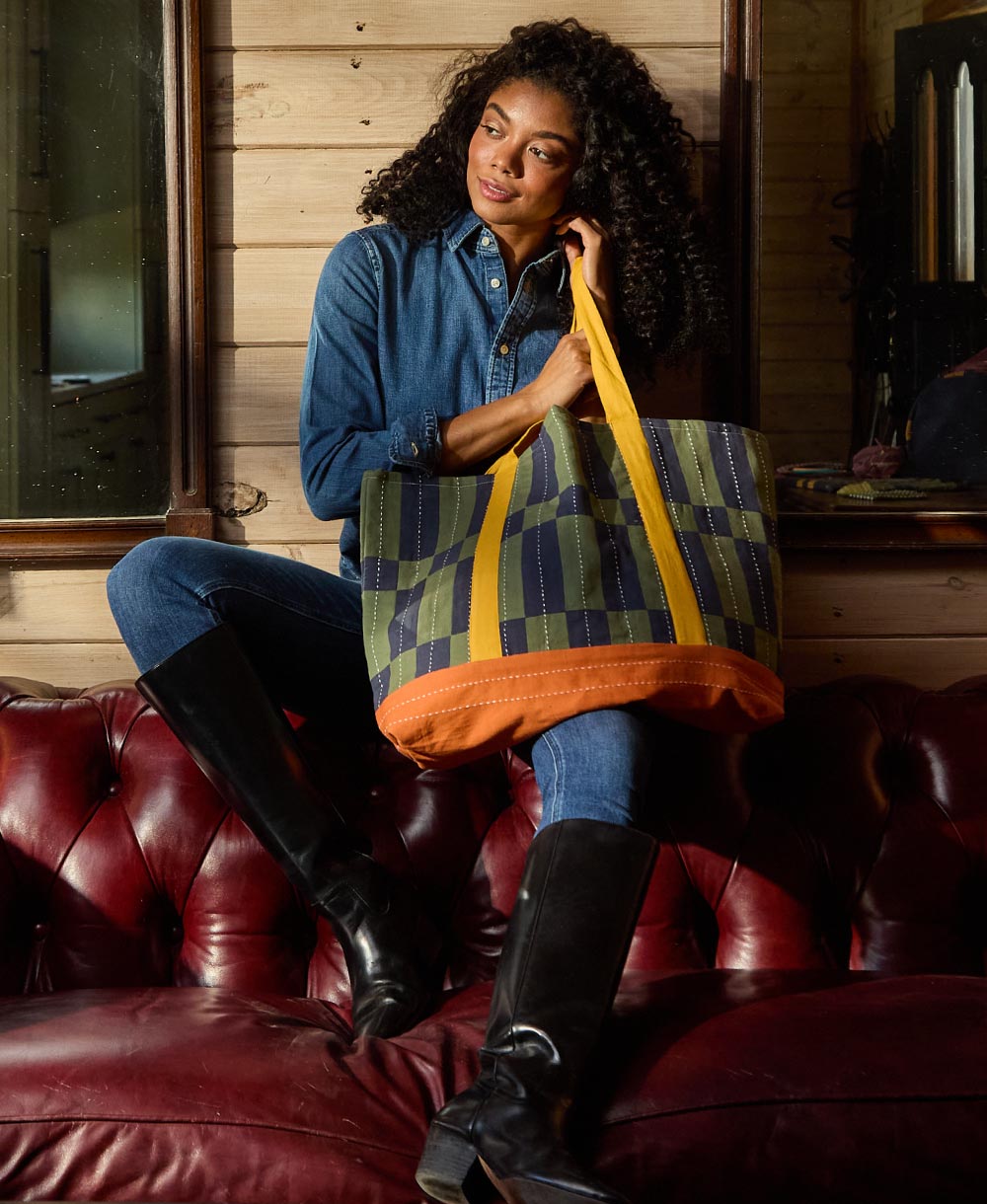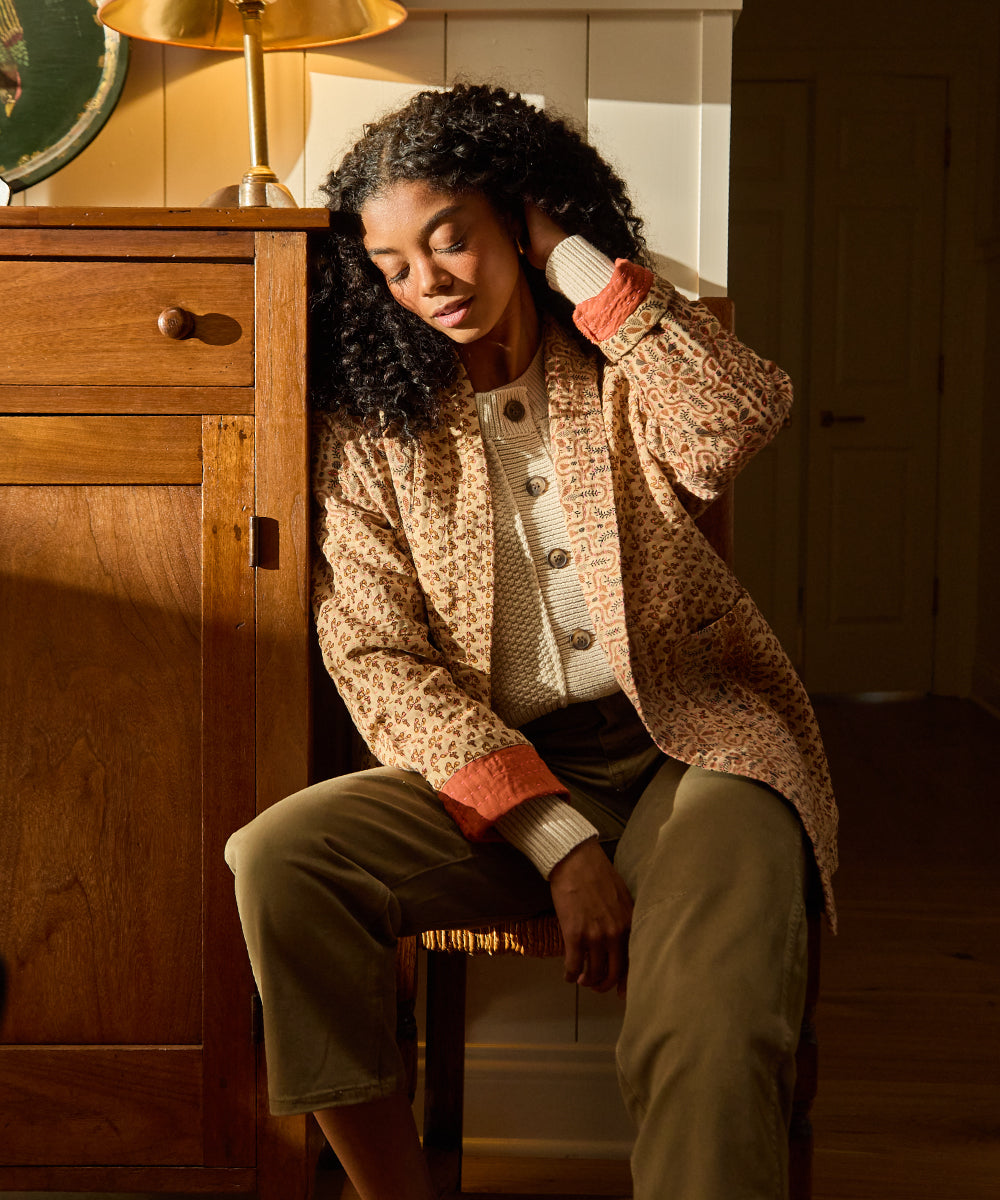I was really nervous to meet the Anchal artisans. In addition to the normal anxieties of meeting someone new, I was worried about overcoming language barriers, communicating effectively & whether or not the time would allow us to connect in a real, meaningful way. Honestly, I had no idea what to expect. ]
On the first day of workshops it didn’t feel like I was walking into an office at all, but instead into a home with a large, welcoming family that was quick to include me. “Tess Didi, do you want breakfast?” They asked with warm smiles that were ready to whip up Paratha from scratch.
Over the week it became abundantly clear that the women, who were once competitors had become more than co-workers and more than friends. During the many interviews I asked them: “Are the other artisans your friends?” I felt as though this was an unnecessary question – the workshop space was filled with hugs, handholding, laughter and constant chatter - but I asked it anyway. Initially I was shocked when Anita answered “no”, until she corrected me: “they are my sisters.” Twenty artisans after her responded the same way.
I also asked the artisans, “Who would you go to in case of an emergency?” Over ten responded that they would go to Kusum, Anchal’s Project Manager. One added, “Kusum would do anything for us.” I wholeheartedly believe that to be true.
On the second day of workshops, one of the project assistants was late. Her husband is abusive – the other artisans know this because he’s sent her to the hospital multiple times. It was unlike her to be late. Their worry was tangible. When she did show up 5 hours later, the others immediately abandoned their work and ran to the door to greet her. They smothered her in hugs, brought her tea and held her hand as she confided in them.
In the states I am responsible for development – I constantly talk about Anchal’s impact and argue that one of the biggest benefits of our program is the newfound sense of community. Anchal is the only reason many of them have to leave their homes. For the first time, they have someone to talk to & someone to listen to. Their opinions are respected and valued. Their ideas are encouraged and their work is complimented. For the first time in their lives they are equal.
After spending time with the artisans, I can say that I no longer feel as though that the word “community” is enough to describe the strength of their bond or the depth of love that they have for one another. Like they told me, they are not friends they are sisters. So from now on, it’s the Anchal family.
- Tess




